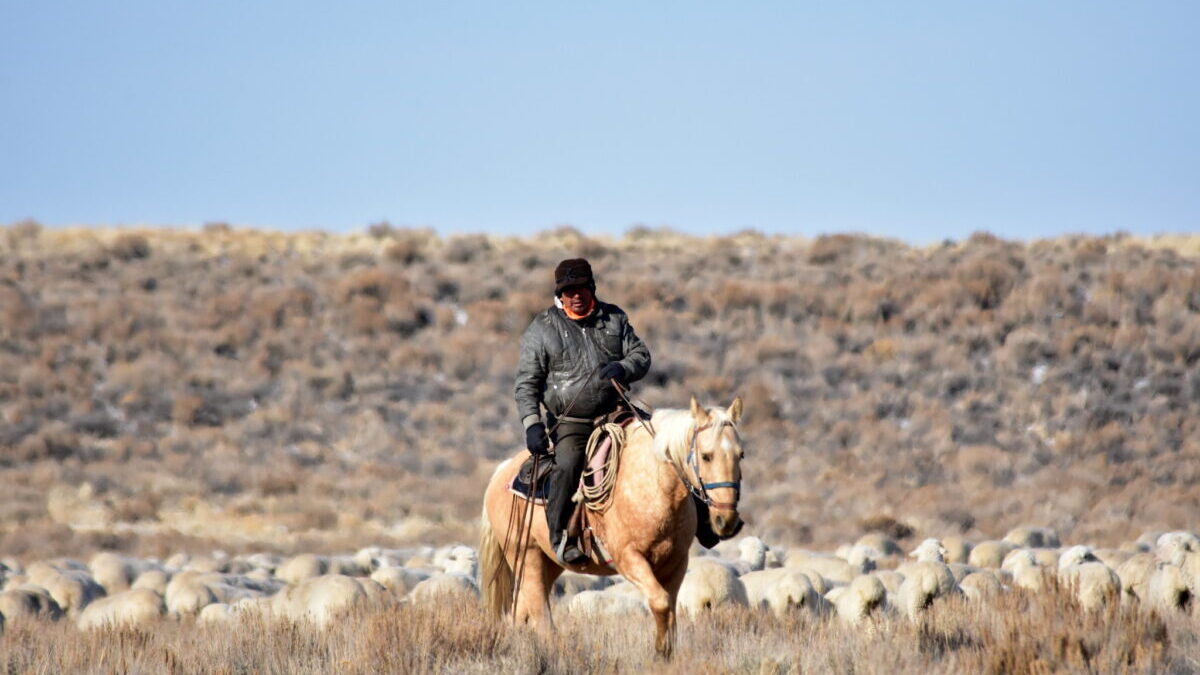The Bureau of Land Management (BLM) wants to lock up public land without hearing from those barred from critical grazing grounds.
On Monday, Wyoming lawmakers sent a letter to BLM Director Tracy Stone-Manning demanding agency leadership recalibrate its schedule for a tour of western states to present a sweeping proposal for “conservation leasing.” The proposed framework threatens to undermine the agency’s “multiple use mandate” by elevating conservation above grazing, recreation, and development, threatening ranchers’ access to public lands.
“Every public-lands state in the West will be gravely impacted if this proposed rule is finalized,” wrote Wyoming’s three-member congressional delegation. “Yet it was announced without consulting many of the most important stakeholders; families, farmers and ranchers, tribes, and others throughout Wyoming and the Western states whose lives and livelihood are intertwined with these lands.”
Congress required the BLM to abide by the long-standing multiple-use doctrine with the Federal Land Policy and Management Act of 1976 (FLPMA). The law stipulates public lands must be available to “best meet the present and future needs of the people,” which means allowing lands to be used for a variety of purposes, from livestock grazing to resource development. Conservation leases outlined by the BLM’s new Public Lands Rule would strip access to public lands locked off from multiple uses.
Republican representatives from Wyoming including Harriet Hageman and Sens. Cynthia Lummis and John Barrasso, condemned the BLM effort to “side-step Congress to re-define BLM’s multiple-use mandate.”
“It would empower radical environmentalist groups to restrict public-access to the opportunities and resources Congress has ensured these public-lands provide,” they wrote.
Wyoming lawmakers also took issue with the BLM’s public meeting schedule, with a mere five two-hour hearings on the calendar, two of which are virtual. The other three are planned to be held in urban city centers such as Denver, Reno, and Albuquerque. No state with a single Republican senator is slotted to host BLM officials over the proposed framework.
[READ: In Tour Promoting New Rule, Bureau Of Land Management Ignores GOP Mountain States It Would Hurt Most]
“Our rural and tribal communities in the West are sparsely populated, spanning thousands of miles, and often lacking the broadband infrastructure to participate in virtual meetings,” lawmakers wrote.
BLM manages 245 million acres of federal property, more than 90 percent of which lies in western states. Nearly half the state of Wyoming is federally managed.
“A resident of Anderson, MT on the Fort Peck Indian Reservation, where broadband access is sparse, would have to travel 699 miles through Montana and Wyoming to attend the nearest scheduled meeting in Denver,” Hageman, Lummis, and Barrasso wrote. “Someone from Powell, WY, where BLM land surrounds the community in every direction, would travel 511 miles to the same meeting.”
The letter from Wyoming lawmakers comes a week after the four-member Idaho congressional delegation sent a letter to the BLM with similar criticism.
“As the Bureau of Land Management (BLM) considers a major shift in the longstanding and well understood multiple-use approach of federal land management, we are discouraged to see Idaho was not listed as one of the sites for in-person public meetings,” Idaho Republicans wrote. “Further, we were disappointed to see not only was Idaho not included, but the in-person locations are geographically concentrated away from many of BLM’s constituents.”
On Wednesday, a coalition of 16 Republican senators representing western states sent their own letter to the bureau demanding the agency withdraw the new rules altogether.
“It’s clear that anti-grazing and anti-development organizations would abuse this tool to attempt to halt ranching and block access to our nation’s abundant energy reserves located on public lands,” they wrote.
Barrasso, the ranking member of the Senate Energy and Natural Resources Committee, proposed legislation with nine other Republicans in the upper chamber, including Lummis, to block the BLM rule.
The BLM’s proposed framework appears to come straight from BLM Director Stone-Manning’s graduate playbook. While the controversy surrounding the BLM director’s nomination proceedings two years ago primarily focused on her past history as an ecoterrorist, her 1992 graduate thesis included proposals for population control and criticism of public grazing.
The framework is also likely to face a court challenge if successfully implemented. The Supreme Court narrowed the scope of authority for federal agencies to circumvent Congress with broad-range proposals in West Virginia v. EPA last summer.
Read the letter from Wyoming lawmakers to the BLM here:
05.16.2023 Letter to Tracy … by The Federalist









